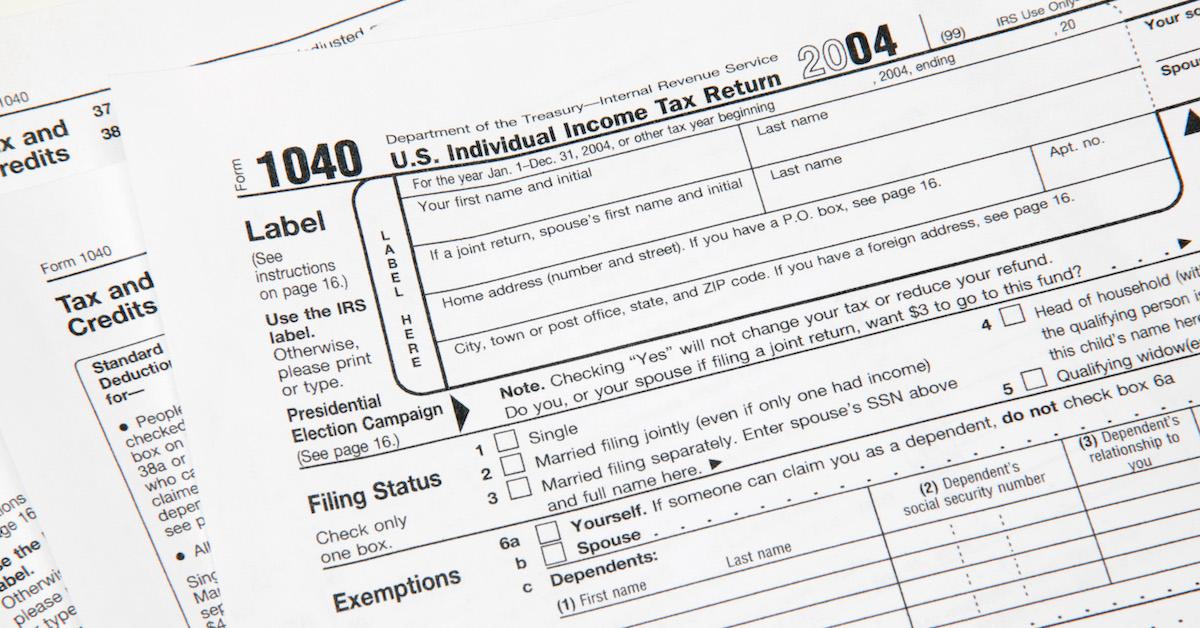Being Audited by the IRS Doesn't Always Mean You're in Trouble
People get audited by the IRS for different reasons. If selected, dont panic. Here's a look at what happens when the IRS audits you.
April 5 2022, Published 3:11 p.m. ET

When it comes to the IRS, the phrase "You're being audited," is one that nobody wants to hear. The IRS defines audits as "A review/examination of an organization's or individual's accounts and financial information to ensure information is reported correctly according to the tax laws and to verify the reported amount of tax is correct." Being audited by the IRS is a serious matter. Here's what happens if the IRS audits you.
The chances of being audited range greatly depending on how much money a person takes. Between 2016 and 2020, the audit rates for people who make between $1 and $10,000,000 range from 0.7 percent–8.6 percent. In general, the odds of being selected for an audit aren't super high.

There are two main reasons why you were selected for an audit.
The first reason a person can be selected for an audit is because of a random screening selection. According to the IRS, "Sometimes returns are selected based solely on a statistical formula. We compare your tax return against "norms" for similar returns." The second reason why a person was selected for an audit is because of issues with things like transactions for entities such as investors and businesses.
Some may wonder if they will be audited if they had to complete an amended tax return. According to the IRS, filing an amended return doesn't have an additional bearing on the audit selection process. Amended returns go through their own screening and the information from the screen may suggest that the amended return needs to be audited.

The IRS notifies you by mail if you're being audited
Usually, the IRS notifies someone that they're being audited by mail or in-person with an interview. In a general audit, interviews are performed at an IRS office, the taxpayer's home, or at the office of the taxpayer's accountant. All of the initial communications regarding audits will always be sent by mail.
The information sent in the mail will inform the taxpayer how their audit will be complete. In some cases, the audit may be done by mail. The IRS will request supplemental documents regarding things such as income, deductions, and expenses.

Examples of things the IRS requires are the following:
- Receipts with dates and notes detailing what the expense was for and what it relates to
- Bills including the name of the person/business receiving the payment, service provided, and payment dates
- Legal papers detailing the type of case (including divorce settlements, criminal paperwork, tax preparation, and property acquisition)
- Loan agreements with the original copy of the loan including borrower names, property location, the amount borrowed, and terms
Other things the IRS can request are logs and journals, tickets, medical/dental records, theft or loss papers, papers of employment and/or schedule k-1. There are also questionnaires that the IRS may request from the person being audited, which can be found on the IRS website.

How long does an audit take and how will it be finished?
Audit schedules vary based on the situation and can depend on how far the auditor needs to go back. There are three outcomes for an audit—no change, agreed, and disagreed. "No change" means that all the information provided has been substantiated and nothing needs to change.
"Agreed" means that the taxpayer agrees with the proposed changes. "Disagree" means the taxpayer doesn't agree with the proposed changes. If a person disagrees with audit changes, they can take part in IRS mediation or they can file an appeal. When a person agrees with the changes, they will be asked to sign the report for the examination.
